General description
Albumin, the major protein produced by liver cells, represents more than half of the total protein content of human serum. Many other body fluids also contain albumin. Three major functions for serum albumin have been proposed: maintenance of osmotic pressure, transportation of a variety of substances and an endogenous source of amino acids. The primary sites of albumin degradation are not known, but the protein can be metabolized by almost every organ in the body. Determination of serum albumin levels is a widely used screening test in clinical medicine. A decrease in serum albumin levels may indicate disease states such as malnutrition, cirrhosis, nephrotic syndrome, diabetes, gastrointestinal and hepatic diseases, thermal burns and pulmonary disease.
Monoclonal anti-Human Serum Albumin (mouse IgG1 isotype) is derived from the hybridoma produced by the fusion of mouse myeloma cells and splenocytes from an immunized mouse.
Specificity
The antibody is specific for human albumin in serum and plasma and recognizes an epitope sensitive to reduction commonly occurring in immunoblotting assays. No cross-reactivity is observed with bovine, cat, catfish, chicken, dog, donkey, gibbon, goat, guinea pig, hamster, horse, marmoset, mouse, pig, pigeon, rabbit, rat, sheep and turkey serum albumin.
Immunogen
Human platelets
Application
Monoclonal Anti-Albumin antibody produced in mouse has been used in:
- enzyme linked immunosorbent assay (ELISA)
- immunoblotting
- immunofluorescence
Western blot analysis of monkey retinal protein extracts were performed using the mouse monoclonal anti-albumin antibody at 1:20000 and overnight incubation at 4 degrees. Immunohistochemistry was performed on frozen monkey retina sections with the mouse monoclonal anti-albumin antibody at 1:1000. Uptake of albumin by LLC-PK1 cells was monitored by immunofluorescence using the mouse monoclonal anti-albumin antibody. Cells were first fixed in 4% formaldehyde the incubated with the antibody for 1 hour at room temperature.
Biochem/physiol Actions
Albumin is a transport protein that binds a broad range of ligands such as fatty acids, bilirubin, hemin, drugs, amino acids and ions . Albumin may also function as a zinc carrier protein and consequently regulate physiological processes . Three major functions for serum albumin have been proposed: maintenance of osmotic pressure, transportation of a variety of substances and an endogenous source of amino acids. The primary sites of albumin degradation are not known, but the protein can be metabolized by almost every organ in the body. Determination of serum albumin levels is a widely used screening test in clinical medicine. A decrease in serum albumin levels may indicate disease states such as malnutrition, cirrhosis, nephrotic syndrome, diabetes, gastrointestinal and hepatic diseases, thermal burns and pulmonary disease.
Serum albumins are implicated in the three major functions such as maintenance of osmotic pressure, transportation of a variety of substances and an endogenous source of amino acids. The primary sites of albumin degradation are not known, but the protein can be metabolized by almost every organ in the body. Determination of serum albumin levels is a widely used screening test in clinical medicine. A decrease in serum albumin levels may indicate disease states such as malnutrition, cirrhosis, nephrotic syndrome, diabetes, gastrointestinal and hepatic diseases, thermal burns and pulmonary disease.
Physical form
The product is provided as ascites fluid with 0.1% sodium azide as a preservative.
Disclaimer
Unless otherwise stated in our catalog or other company documentation accompanying the product(s), our products are intended for research use only and are not to be used for any other purpose, which includes but is not limited to, unauthorized commercial uses, in vitro diagnostic uses, ex vivo or in vivo therapeutic uses or any type of consumption or application to humans or animals.
biological source: mouse. Quality Level: 200. conjugate: unconjugated. antibody form: ascites fluid. antibody product type: primary antibodies. clone: HSA-9, monoclonal. contains: 15 . mM sodium azide. species reactivity: rhesus monkey, baboon, human. should not react with : catfish, turkey, chicken, hamster, rabbit, horse, donkey, cat, marmoset, pig, guinea pig, mouse, sheep, dog, pigeon, gibbon, bovine, goat. technique(s): indirect ELISA: 1:500. isotype: IgG1. UniProt accession no.: P02768. shipped in: dry ice. storage temp.: −. 20°C. target post-translational modification: unmodified. Gene Information: human ... ALB(213). Storage Class Code: 10 - Combustible liquids. WGK: WGK 3. Flash Point(F): Not applicable. Flash Point(C): Not applicable.Shipping Information:
Dry Ice Surcharge & Ice Pack Shipments: $40
More Information: https://cenmed.com/shipping-returns
- UPC:
- 41181501
- Condition:
- New
- Availability:
- 3-5 Days
- Weight:
- 1.00 Ounces
- HazmatClass:
- No
- MPN:
- A2672-.2ML
- Temperature Control Device:
- Yes












